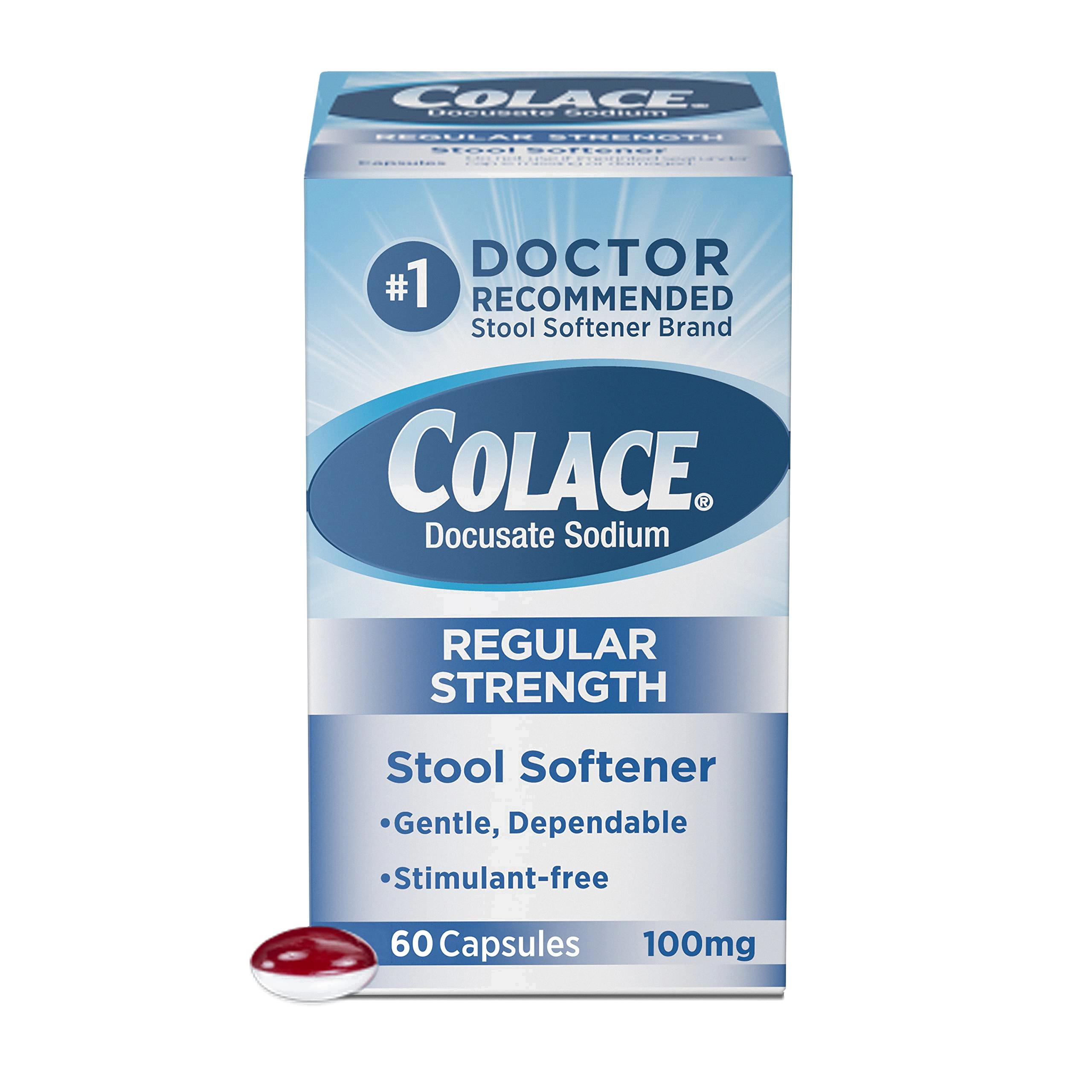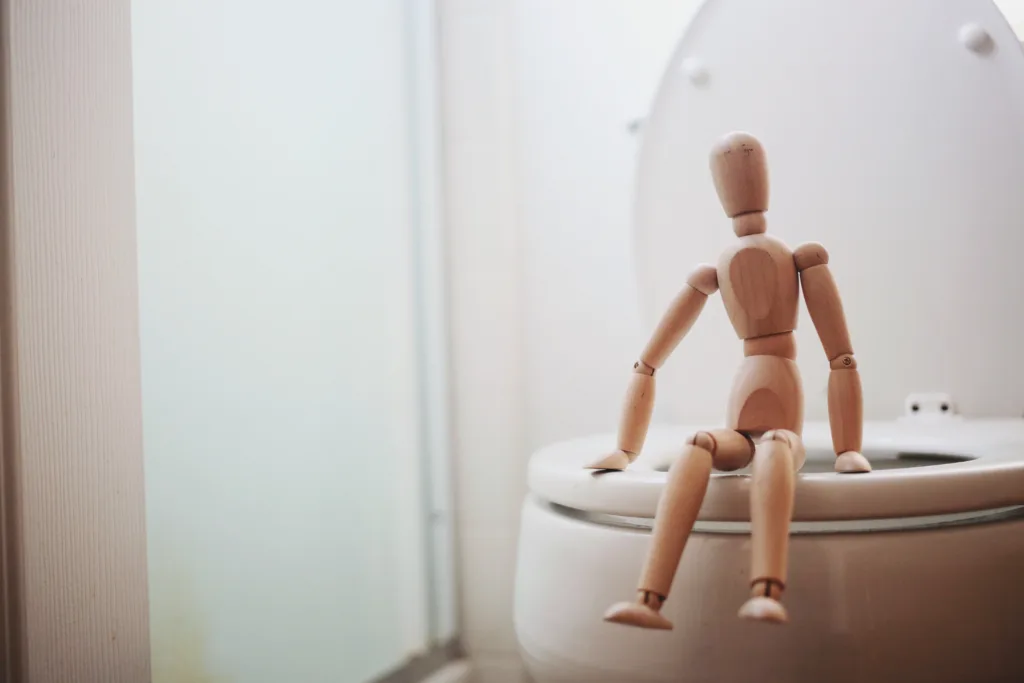Stool is the solid waste that is expelled from the body during a bowel movement. It is formed in the large intestine and is composed of undigested food, water, and bacteria. Soft and regular bowel movements are important for maintaining good health. However, sometimes stool can bcome hard and difficult to pass, causing discomfort and constipation.
One way to soften stool is by increasing the intake of fiber-rich foods. Fiber is the indigestible part of plant foods that adds bulk to stool and helps it move through the digestive system. There are two types of fiber: soluble and insoluble. Soluble fiber dissolves in water and forms a gel-like substance in the intestines, helping to slow down the digestion process. Sources of soluble fiber include oats, barley, fruits, and vegetables.
On the other hand, insoluble fiber does not dissolve in water and helps stool move more quickly through the intestines. Sources of insoluble fiber include whole grains, nuts, seeds, and vegetables like cauliflower, green beans, and potatoes. It is important to increase fiber intake gradually and drink plenty of water to avoid bloating and gas.
Another way to soften stool is by drinking more water. Dehydration can cause stools to become hard and difficult to pass. Aim to drink at least eight glasses of water per day to keep stools soft and regular. Drinking warm liquids like herbal tea or warm water with lemon can also help stimulate bowel movements.
In addition to dietary changes, there are over-the-counter options for softening stool. Laxatives and stool softeners are medications that can help relieve constipation. Laxatives work by stimulating the muscles of the intestines to move stool out of the body. Stool softeners work by drawing water into the stool, making it easier to pass. It is important to follow the instructions on the label and not to overuse these medications, as they can cause dependency and other side effects.
Soft and regular bowel movements are important for maintaining good health. Increasing fiber intake, drinking plenty of water, and using over-the-counter medications can all help soften stool and relieve constipation. It is important to make changes gradually and to speak with a healthcare provider if symptoms persist.
What Are Some Immediate Solutions for Softening Stool?
Many factors can cause constipation, including a low-fiber diet, dehydration, and a sedentary lifestyle. Fortunately, there are various ways to soften stools immdiately and relieve constipation. Here are some effective methods:
1. Drink plenty of water: Dehydration can make stools hard and difficult to pass. Drinking enough water can help soften stools and promote regular bowel movements.
2. Increase fiber intake: Fiber is an essential nutrient that adds bulk to stools and helps move them through the digestive system. Foods rich in soluble fiber include oats, apples, bananas, and beans, while insoluble fiber can be found in whole grains, nuts, and vegetables.
3. Exercise regularly: Regular physical activity can help stimulate bowel movements and prevent constipation.
4. Use stool softeners: Over-the-counter stool softeners, such as docusate sodium, can help soften stools and make them easier to pass.
5. Try a laxative: Laxatives are medications that can help stimulate bowel movements and relieve constipation. However, they should only be used as a last resort and under the guidance of a healthcare professional.
Staying hydrated, increasing fiber intake, exercising regularly, using stool softeners, and trying a laxative when necessary, are all effective ways to soften stools immediately and relieve constipation.

Source: amazon.com
Breaking Up a Hard Stool That Won’t Come Out
Constipation can be a frustrating and uncomfortable experience. When a hard stool won’t come out, it can cause pain and discomfort. Fortunately, there are several ways to break up a hard stool and ease constipation.
1. Drink pleny of water: Drinking water can help soften stool and make it easier to pass. Aim to drink at least 8-10 cups of water per day.
2. Increase your fiber intake: Eating fiber-rich foods like fruits, vegetables, whole grains, and legumes can help add bulk to your stool and make it easier to pass.
3. Exercise: Regular exercise can help stimulate bowel movements and promote regularity.
4. Try a stool softener: Over-the-counter stool softeners like docusate sodium can help soften stool and make it easier to pass.
5. Use a laxative: Laxatives can help stimulate bowel movements and relieve constipation. However, they should only be used as directed and under the guidance of a healthcare provider.
6. Consider an enema or suppository: Enemas and suppositories can help soften stool and stimulate bowel movements. However, they should only be used as directed and under the guidance of a healthcare provider.
Breaking up a hard stool that won’t come out can be achieved by drinking plenty of water, increasing fiber intake, exercising, using a stool softener, considering a laxative, or using an enema or suppository under the guidance of a healthcare provider. It’s important to talk to your doctor if you experience chronic constipation or if your symptoms persist despite home remedies.
Softening a Hard Stool
It is possible to soften an already hard stool. There are several effective ways to do this:
1. Increase your fiber intake: Eating more fiber can help soften your stool. Fruits, vegetables, whole grains, and beans are all excellent sources of fiber. You can also take fiber supplements, such as psyllium husk.
2. Drink plenty of water: Drinking more water can help soften your stool and make it easier to pass. Aim to drink at least eight glasses of water per day.
3. Use a stool softener: Over-the-counter stool softeners, such as docusate sodium, can help soften your stool. They work by drawing water into your stool, making it easier to pass.
4. Try a laxative: If your stool is very hard and you are experiencing constipation, a laxative may be necessary to help soften your stool. There are many types of laxatives available, including osmotic laxatives, stimulant laxatives, and lubricant laxatives.
5. Use an enema: If your stool is very hard and you are unable to pass it, an enema may be necessary to help soften your stool. An enema involves flushing water or a saline solution into your rectum to help loosen and soften the stool.
It is important to note that if you are experiencing chronic constipation or have other underlying health conditions, you should speak with your healthcare provider before trying any of these methods. In some cases, a more comprehensive treatment plan may be necessary to address the underlying issue.
How Long Does It Take for Stools to Soften?
Stool softeners are commonly used to treat constipation and to make bowel movements easier to pass. The time it takes for stool softeners to work can vary depending on the type of stool softener used.
Docusate is a common stool softener that can take 24–48 hours to work. This medication works by increasing the amount of water in the stool, making it softer and easier to pass.
Fiber-based laxatives, such as Fibercon and Metamucil, can take 12–72 hours to work. These medications work by adding bulk to the stool, wich helps to stimulate bowel movements.
In addition to stool softeners and laxatives, there are other ways to soften stools and relieve constipation. Drinking plenty of water, eating a high-fiber diet, and getting regular exercise can all help to prevent constipation and promote regular bowel movements.
It is important to note that if constipation persists or if you experience severe abdominal pain or other symptoms, you should seek medical attention. In some cases, constipation may be a sign of a more serious underlying condition that requires treatment.

Conclusion
Stool is an important aspect of our digestive health, and it can provide valuable information about our overall well-being. It is essential to pay attention to the frequency, consistency, and color of our bowel movements, as any changes can be indicative of underlying health issues. Maintaining a healthy diet that is rich in fiber and staying hydrated can help soften stools and make them easier to pass. In cases of constipation, home remedies such as exercise, laxatives, and stool softeners can provide relief. However, if symptoms persist or worsen, it is crucial to seek medical attention. Taking care of our digestive health can lead to beter overall health and well-being.
